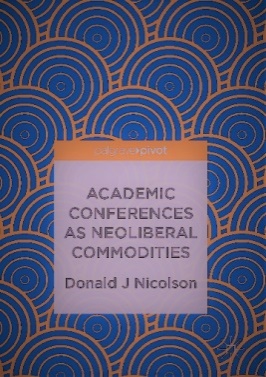Yesterday we had a conference paper accepted by the EUPHA (European Public Health Association) International Conference. When the paper was originally submitted to the EUPHA Health Workforce Research Section Mid-term Conference we had opted for an oral presentation in person at the conference in Romania this summer. However, with the COVID-19 pandemic travelling to Romania to attend this conference is not an option for many (if not most) academics. Therefore the organising committee took the initiative to re-arrange it as a virtual meeting. Further good news for us is that participation will be free.
Of course, I am aware that some of the strengths of attending conferences include having unexpected discussions (often in the bar) with fellow academics and being away from the day job. At the moment being forced to choose between postponing or cancelling a conference or changing to a virtual meeting conference organisers may want to reflect on “… ask how conferences make a difference.” This question was originally raised in the book Academic Conferences as Neoliberal Commodities by Donald Nicholson [1].
We should have moved to more virtual meetings and online conferences much sooner, but it is easy to say with hindsight! The COVID-19 crisis has thought us that virtual classrooms, internet-based tutorials, Zoom meetings and online conferences can work, albeit with their limitations. It is worth considering the return of investment of a conference [2] not just for the conference organisers (and funders) but also individual academics as less travel will be saving time and society as reducing travel, especially international flights, will improve our carbon foot print.
Prof. Edwin van Teijlingen
Centre for Midwifery, Maternal & Perinatal Health (CMMPH)
References
- Nicolson. D.J. (2017) Academic Conferences as Neoliberal Commodities, Palgrave Macmillan.
- Nicolson. D.J. (2018) Guest post by Donald Nicolson: The problem of thinking about conferences and Return on Investment (ROI)











 Expand Your Impact: Collaboration and Networking Workshops for Researchers
Expand Your Impact: Collaboration and Networking Workshops for Researchers Visiting Prof. Sujan Marahatta presenting at BU
Visiting Prof. Sujan Marahatta presenting at BU 3C Event: Research Culture, Community & Can you Guess Who? Thursday 26 March 1-2pm
3C Event: Research Culture, Community & Can you Guess Who? Thursday 26 March 1-2pm UKCGE Recognised Research Supervision Programme: Deadline Approaching
UKCGE Recognised Research Supervision Programme: Deadline Approaching ECR Funding Open Call: Research Culture & Community Grant – Apply now
ECR Funding Open Call: Research Culture & Community Grant – Apply now ECR Funding Open Call: Research Culture & Community Grant – Application Deadline Friday 12 December
ECR Funding Open Call: Research Culture & Community Grant – Application Deadline Friday 12 December MSCA Postdoctoral Fellowships 2025 Call
MSCA Postdoctoral Fellowships 2025 Call ERC Advanced Grant 2025 Webinar
ERC Advanced Grant 2025 Webinar Update on UKRO services
Update on UKRO services European research project exploring use of ‘virtual twins’ to better manage metabolic associated fatty liver disease
European research project exploring use of ‘virtual twins’ to better manage metabolic associated fatty liver disease